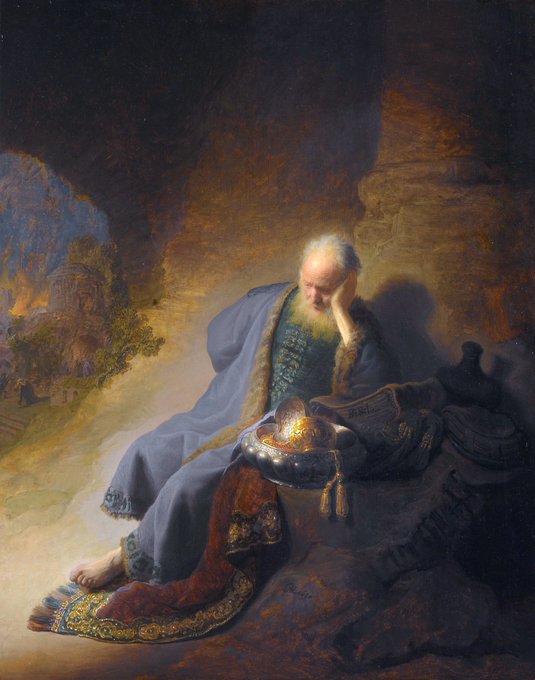I ship my drawings worldwide via registered post in Europe & via courier elsewhere.
The Pink Woman (2021)
Buy here: https://t.co/oM78YIQbL5
For Irish people there are a number of important Rembrandt’s in the National Gallery. His Rest on the Flight (1647), the Demidoff Rembrandt (1632-3) & La Main Chaude (c1628). The latter shows a beer drinking game involving slapping a player on the bottom in the dark...
With time Rembrandt’s technical ability continuously evolved & his genius grew. Woman Bathing (1654), Man in Armour (1655), Hendrickje (1659) & Portrait of the Artist At his Easel (1660). His self-portrait is testament to that genius
The 1650s were difficult as his abundant spending left him heavily in debt. He was forced to sell his home & collections. Man in Golden Helmet (1650), Kitchen Maid (1651), Portrait of an Old Man (1652-4) & Portrait of an Old Jew (1654)
In the 1640s Hendrickje came into his life & would become his muse & life partner. Girl at a Window (1645), Holy Family (1645), Adoration of the Shepherds (1646) & Supper At Emmaus (1648). The latter shows he was looking at Titian (one of his favourite artists)
Rembrandt’s beloved son Titus was born in 1641 but Saskia died in 1642. Titus would look after his dad & rescue him from his spendthrift ways. Titus (1655, 1656 & 1657) & Saskia (1635)
Susannah (c1634), Sacrifice of Isaac (1635), Belshazzar’s Feast (1636) & Portrait of Baartgen Martens Doomer (1640). Story telling is all in his religious works - tenseness, vulnerability & surprise. His portrait of Baartgen is a moving image of empathy.
His portraits are powerful images of his sitters. Centuries later we feel we have some understanding of who these people were & how they felt. Johannes Wtenbogaert (1633), Artemisia (1634), Descent from the Cross (1634) & Aechje Claesdar (1634)
Rembrandt always showed a great deal of empathy & respect towards the elderly. With astonishing ability he creates psychologically profound stories in his pictures. St Paul (1629-30), Anna & the Blind Tobit (c1630), Jeremiah (1630) & A Man taking a Leak (1631)




































